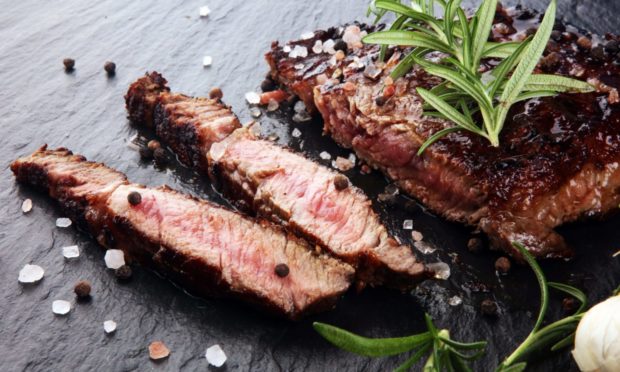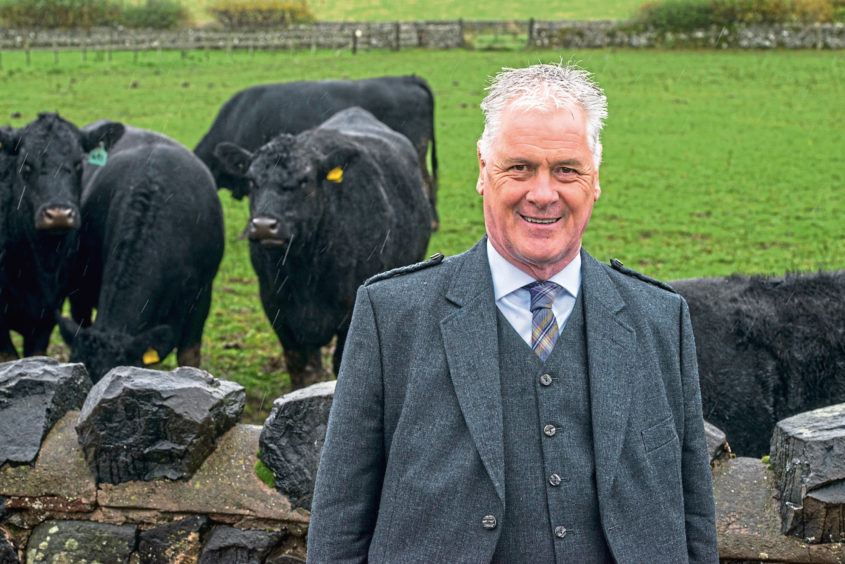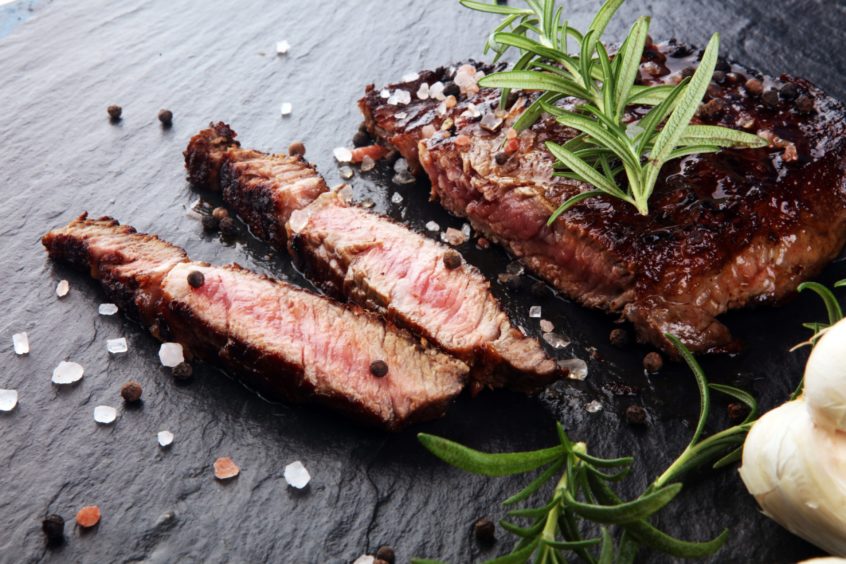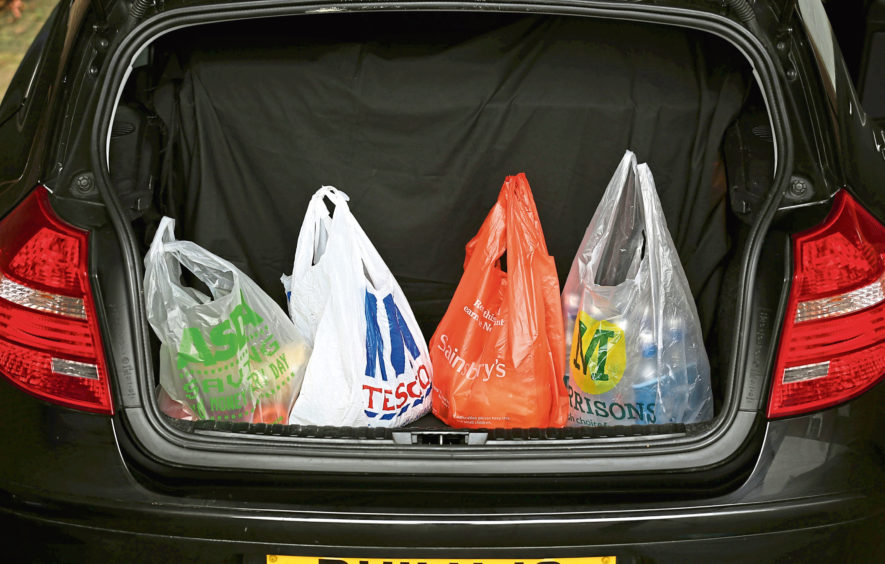With Great British Beef Week set to begin tomorrow, consumers are being urged to take advantage of the availability of prime cuts once reserved for hotels and restaurants.
Alan Clarke, the chief executive of Quality Meat Scotland, which promotes the red meat sector and markets the quality ‘Scotch’ brands, said the new #makeit campaign comes amid a sense that shoppers may not always feel confident about cooking prime cuts such as fillet and sirloin steak at home.
The sudden fall away in the food services trade following the closure of catering, hospitality and events businesses during lockdown, means there were limited outlets for higher-value cuts of beef – with the result that some ended up being used in mince.
He explained: “Farmers initially saw the increase in demand [from consumer stockpiling] but we were in unchartered waters and the farm gate price has been difficult. The sheep price overheated for a while then it got too low and now it has settled again. The pork price has settled with China reopening again, that has helped. But the one we’re worried about is the beef sector; the farm gate price has been falling. It’s a thing called carcus balance. Parts of the animal have high value, like sirloin steaks, fillet steaks and roasts, and a lot of that meat is actually [used] in top restaurants all over the UK.
“That market was lost overnight and we had processors having to take those high-quality meats and put them into things like mince – a much lower-value item. The mince and diced products were the things a lot of consumers seemed to go for. That gave us an idea. If you’re going to a restaurant and paying a bit of money for a steak you expect it to be perfect and a lot of people maybe think, ‘I couldn’t cook it as well at home’. It’s the same with a roast. So we have just launched a marketing campaign in Scotland. #MakeitScotch, #MakeitatHome.”
The red meat sector is worth an estimated £2 billion to the Scottish economy, supporting 50,000 jobs across Scotland. European nations such as France, Italy, Belgium and the Netherlands are important export markets, but Scotch Beef in particular is sold further afield including in Hong Kong, Japan, and Canada where it is again being served for the first time since 1996. The UK, however, remains by far the biggest market for red meat produced in Scotland.
And although there was an initial surge in domestic retail trade at the start of lockdown, there are troubling indications that footfall in stores is tumbling as people limit their trips to supermarkets.
Alan Clarke said: “One of the worrying figures I was looking at from the British Retail Consortium is footfall – it’s down 89% year on year since lockdown and that is really worrying. I know online [trade] has increased and there’s a setting off of that. At the beginning people were stocking up and I think now they’re topping up and that will have a major impact. With our #makeit marketing campaign we want to show people how to make a really good steak and use those quality cuts.”
At the peak of demand when supermarkets were struggling to keep fridges stacked with meat in stores, imported products began to appear in place of UK ones. While that wasn’t a situation Scottish meat producers were happy to see, they were at least cheered by the consumer response.
“There was such a turbulence in the market. We were into the unknown and we had a case where two supermarkets bought in Polish mince,” Alan Clarke explained.
“We are a net importer of beef in the UK; we don’t produce enough beef in this country to feed everyone. Very often [imported meat] might go into the food service industry where it may not be seen. But in this case when it did come onto the shelves they labelled it Polish and what I liked about that was, consumers didn’t buy it. It was being sold off and discounted after a few days. Consumers voted with their purses. They didn’t buy it and that’s good for us going forward. We’ve got the best quality on our doorstep. When you’re buying Scotch you know you’re getting some of the best in the world.”
With food service trade drying up and retail sales now flattening, Alan Clarke points to the innovation across the sector with butchers adapting quickly to provide online ordering and door-to-door deliveries. But he is in no doubt that this period of restricted trade is fraught with risk.
“A lot of the challenges are still to come. We know the numbers who have been furloughed is somewhere in the region of 25% so if those people don’t get their jobs back that amounts to 11 million people across the UK who are unemployed at the end of this. The industry has to work together to make sure it still exists and it can survive.
“We’re working closely with the Scottish Government and DEFRA [the Department for Environment, Food and Rural Affairs] as part of a beef resilience group. I think Government has stepped up to the plate to help businesses with business rates and with the furloughing of workers but sometimes there’s unintended consequences and the devil is in the detail and we’ve had to keep navigating our way through it.”
With a trend now being reported across the food and drink sectors of consumers supporting local produce, there is reason to be optimistic that this loyalty will continue beyond lockdown. And the red meat sector hopes its reputation overseas will also lead to continued growth in exports when restrictions eventually ease.
Alan Clarke added: “It’s fantastic the way consumers have supported British and Scottish producers and I think that’s something that will continue to happen. I don’t think lockdown will go away overnight, I think it will be phased, it will be a long time before the food service industry gets back to where it needs to be.
“We have an amazing reputation abroad. The further you travel the higher the esteem in which our beef is held.
“I was part of a UK delegation last year in Japan. We had a group of around 100 buyers and around 20 of them we had hosted for dinner in Edinburgh about four months beforehand. When these buyers were coming over to us we didn’t have to sell them anything, we didn’t have to tell them one thing about the quality, it spoke for itself.”



